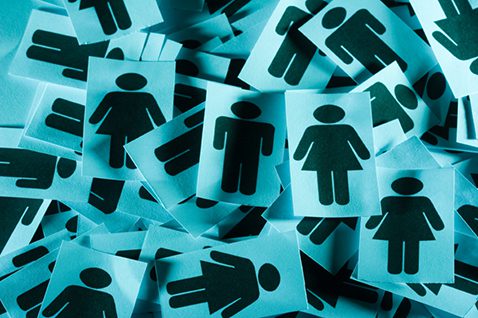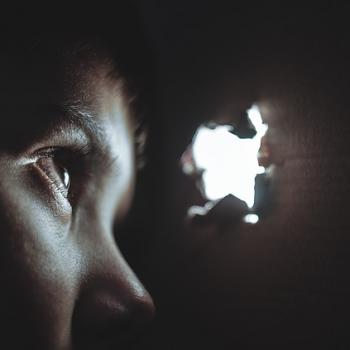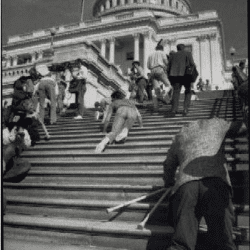Recently, there’s been a heated discussion around the need for female speakers and scholars on panel discussions at Muslim conferences, seminars and events. If you haven’t already, check out #NoAllMalePanels on Twitter – there was a great “tweetstorm” around this hashtag last night. Many of our conferences, seminars and events do have male-dominated panel discussions, which isn’t always problematic, but it begs the question – were there not qualified women speakers? I hardly think that is the case.
This feeds into the greater problem of the silencing of women of our community. We truly have done an injustice to our sisters by providing mediocre prayer spaces for them at masjids, rejecting them from being a part of critical community discussions and educational programs and virtually applying undue pressure on them in the form of asking them to conform to impossible standards of beauty, lifestyle and dress.
We are literally driving our sisters out of our community. The absence of female speakers and scholars from our community discussions and educational events is just one of many problems when it comes to the treatment of our women. How can we as Muslims say that Islam promotes women’s rights and empowers women to our non-Muslim neighbors, colleagues and friends when our actions say the opposite?
We must encourage the participation of our sisters in community discussions and educational events for community growth. Our younger sisters are growing up seeing male-dominated panels, masjids that don’t provide adequate prayer space for them and Muslim organizations that don’t allow them to participate. How then do we expect our younger sisters to feel a part of our community? How do we expect our future mothers to feel a strong sense of belonging and a confidence in our community and our faith? How do we expect them to come day in and day out to organizations, conferences, seminars, halaqas and masjids that are actively rejecting them?
How do we expect our younger sisters to have role models when all they see are male-dominated panels? How do we expect to solve the problems facing our community without the voice of our women?
What we are doing is clear and simple injustice. Here are five steps we can take to rectify this inexcusable problem.












